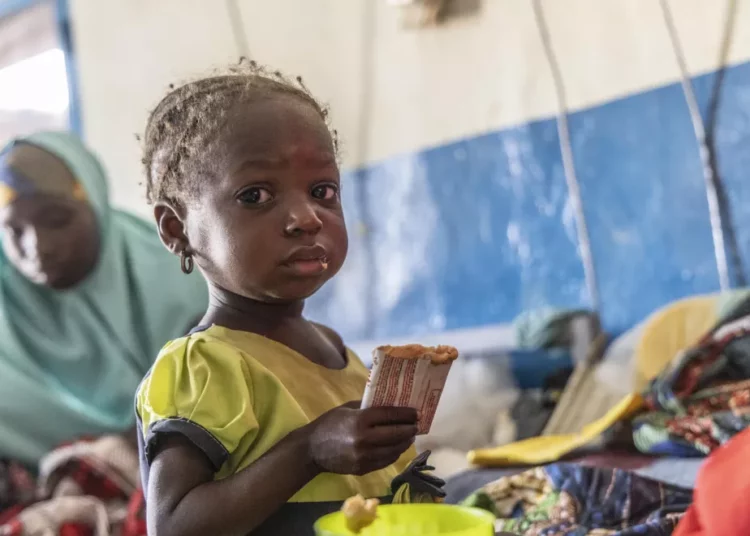
One phrase you will hear in this regime is “people are hungry” which is the sign of an economic downside known as malnutrition. That people are hungry and can no longer go to their farms because of the fear of being maimed and kidnapped is enough to bring starvation and malnutrition. Malnutrition according to Wikipedia occurs when an organism gets too few or too many nutrients, resulting in health problems.
Specifically, it is a deficiency, excess, or imbalance of energy, protein and other nutrients which adversely affect the body’s tissues and form. Malnutrition is a category of diseases that includes undernutrition and overnutrition. Undernutrition is a lack of nutrients, resulting in stunted growth, wasting, and underweight.

A surplus of nutrients causes overnutrition, which can result in obesity. In some developing countries, overnutrition in the form of obesity is beginning to appear within the same communities as undernutrition. My focus for this week is on the hike in prices of foodstuffs because of the increase in fuel prices.
Making it hard for an average person to live averagely. For some families, it means cutting off some basic needs and looking for other substitutes to them. This in turn brings about undernutrition.
Undernutrition a form of malnutrition has peaked this season due to the economic situation of the country. Many are beginning to experience hunger pangs in more ways than meets the eye. How can we navigate these seasons of undernutrition and not be burned? These are the cheat codes to staying adequately nourished this season.
Making Dietry Changes: This involves making a conscious effort to make adequate changes, making sure that what we eat has the basic nutritional values to sustain our health. Trying our indigenous foods is a way to go in the fight against malnutrition. We have a whole lot of grains that can take our dietary level to the top.
Acha: “Acha which is also known as Fonio is a good source of B vitamins, including thiamine, riboflavin, and niacin, which are necessary for the growth, development, and function of cells, as well as energy production. The United Nations Food and Agriculture Organization (FAO) suggest that fonio has the highest calcium content of all grains. This may make it a good choice for those who don’t consume dairy, such as vegans or individuals with lactose intolerance Fonio also provides iron, copper, zinc, and magnesium” Healthline.
Corn: One grain that is so common on this side of the globe is corn. “Corn is a healthy grain and source of fibre, vitamins, minerals, and antioxidants. It may promote eye and digestive health.
Refined corn products, however, such as tortilla chips, offer fewer health benefits” Healthline. Next time you see a local corn stand think of the many nutritional benefits you will be adding to your system. Millet: Pulse News opined that millet, a little round grain, can be cooked into a delicious salad base or ground into flatbreads.
It’s filled with fibre, and vitamin B6, and is relatively low in calories. These millets are also processed in the form of fufu and used to enjoy different types of vegetable soups. An example of when healthy and nutritious goes hand in hand.
In these challenging times, staying nourished is crucial for our health and survival. By making smart dietary choices and turning to our local, nutrient-rich foods like acha, corn, and millet, we can combat undernutrition without breaking the bank. It’s about maximizing what we have and ensuring that every meal counts towards sustaining our well-being.
Let’s rise to the occasion, adapt, and make conscious efforts to stay healthy despite the economic pressures. Your health is your wealth—nourish it wisely..














